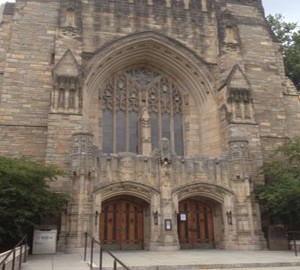China’s Gaokao Scores Help in U.S. College Admissions
For several years, a few private America universities have been accepting the scores of Chinese students in their National Higher Education Entrance Examination, also known as Gaokao for “High Exam”. They do this primarily in recognition of the extreme rigor of the Chinese exam. This year, for the first time, an American state flagship university, the University of New Hampshire in Durham, joins these private institutions in acceptingGaokao scores, perhaps signaling the beginning of a trend in American admissions policies.
As noted in a recent post, many American institutions no longer require the submission of SAT or ACT scores, a condition that eases the application process for international students applying to our schools. But the acceptance of Gaokao scores from Chinese students goes one step further. It permits Chinese applicants to demonstrate their proficiency in a range of academic subjects through their performance on one exam, either of two versions of the Gaokao; one focused on social sciences and the other on natural sciences. Proficiency in English also needs to be demonstrated by Chinese students for admission to American colleges.
The Gaokao can also accelerate the matriculation of a Chinese student at an American institution. The exam is given only once a year in June, which would normally delay a student’s matriculation in the U.S. for over a year. The UNH admissions cycle is accelerated for Chinese applicants to allow those admitted in the summer of the exam to start as freshmen the following January rather than the next fall semester. This is also the policy of the University of San Francisco and the University of St. Thomas in St. Paul, two private institutions, as well as Suffolk University in Boston. These schools have been accepting the Gaokao since 2015.
To say that the results of the Gaokao leave many highly qualified students out in the cold is an understatement. The Gaokao, which lasts about nine hours over two days, determines the academic futures of almost 10 million Chinese students, less than 1% of whom are granted admission to China’s top universities and only 2% of whom are admitted to any Chinese university at all.
Initially taken in the final year of high school, students spend years preparing for the Gaokao to the exclusion of most other activities, including taking the SAT or ACT or even submitting applications to American universities. As noted in a recent article by Tiffany May in the New York Times, “It is rare for students to apply to programs abroad while also preparing for the Chinese exam, which takes place months after the deadline for most American universities.”
There are 377,000 Chinese students attending colleges and universities in the U. S. They account for about one-third of the more than one million international students in the country, the largest national contingent. The number of Chinese students rose after the 2008 recession due to the need of American institutions to seek new sources of revenue. But it waned briefly in 2017 due to the immigration policies of the current administration plus the fact that many excellent universities in Canada, Australia, and other English-speaking countries now accept Gaokao scores in lieu of other standardized test results.
Competition among international students for admission to Ivy League and other top-tier institutions in the U.S. grew even more intense for admission to the Class of 2022. International students applying to top U.S. colleges face even longer odds in admissions than Americans due to additional obstacles that must be overcome. If you’re one of these students, you’re well advised to rely on a highly qualified international admissions expert. Expertise of this type is vital to the successful navigation of the American admissions process.
Working with a private college advisor who is a recognized international college admissions specialist is vitally important. Any college counselor can claim that they have international expertise. However, the Independent Educational Consultants Association (IECA), one of the premier trade associations in this field, has a protocol for vetting qualified international specialists. Michael Goran, the Founder, Director, and Lead Educational Consultant of IvySelect, has been awarded the International Specialty Designation by IECA. Michael is among the IECA members to have received this prestigious designation when the Association introduced it several years ago.





